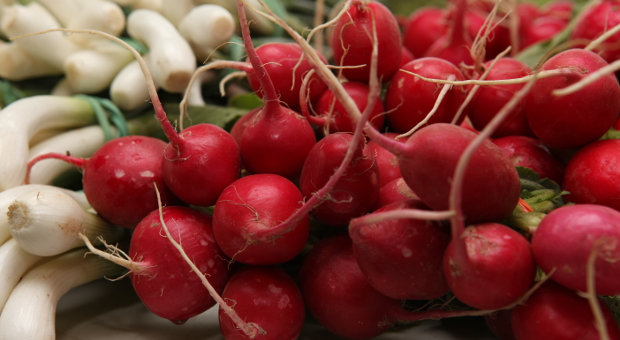The Medical Minute: Some thoughts about organics and “superfoods”

Winter has worn out its welcome. People are eagerly looking forward to the warm weather, getting outside, and indulging once again in fresh, local produce.
As consumers inundated with choices, we often wonder what's the best food to purchase—to go organic or not.
Holly Doan, R.D., L.D.N., in-store nutritionist for GIANT Food Stores’ Linglestown location, will offer guidance as the featured guest during Penn State Hershey Cancer Institute’s Bladder Cancer Support Group meeting.
According to Doan, there are a variety of reasons that people may choose to purchase organic.
“They often feel it's a better health choice and also, there's a lot of concern for the environment since organic farming can lead to better sustainability,” she said.
There is presently no scientific research that provides strong evidence that organic food products are healthier than non-organic. However, one of the concerns about buying non-organic products is pesticide levels, something also debated to be unsafe without studies to substantiate the claim.
Doan advises clients with concerns to err on the side of safety and to buy organic products.
Dr. Matthew Kaag, a urologic oncologist at Penn State Hershey, recommends organic produce when possible, as well.
“I find the idea that I’m eating only the food I intend to eat — without pesticides, additives, growth hormone–attractive,” he said.
However Doan sees no detriment to not buying organic because if it's allowed in the stores, she says, it's considered safe.
“The overarching idea is that regardless of buying organic or non-organic, it's going to be more of a benefit for you to have a diet that's high in fruits and vegetables,” she explained.
Kaag agrees.
“It's certainly possible to eat healthy without limiting oneself to organic foods,” he said, a point he stresses when discussing diet with patients from varying socio-economic backgrounds.
Another safety consideration is thoroughly washing all produce before consumption. Although they are not synthetic, organic produce also has pesticides.
Produce can be washed by running it under cold water and using a scrubbing brush to remove dirt and pesticides. Vinegar-based vegetable washes or sprays can remove more of the contaminants than just rinsing.
In addition to fresh fruits and vegetables, Doan recommends whole grain, fiber, low-fat dairy and lean meats as part of her list of superfoods.
According to Kaag, superfoods are items that are particularly high in nutrients that are crucial to good health. These foods are a key part of a healthy diet and are packed with vitamins, antioxidants, certain healthy fats like the omega 3s, fiber, and protein. They have been shown to have benefits such as reducing cholesterol, contributing to heart health, building muscle and bone, and possibly reducing cancer risk.
Some commonly recognized superfoods include beans, blueberries, oats, pumpkin, salmon, soy, spinach, green or black tea, tomatoes, turkey, walnuts and yogurt. Learn more about these and other superfoods, visit the Penn State Hershey Project Health web page for a short video and additional information.
Doan believes meeting with a nutritionist can help you evaluate your diet and recommend foods you'd want to include based on your dietary needs and health concerns.
More information on these topics will be presented at the Penn State Hershey Cancer Institute’s Bladder Cancer Support Group meeting on Saturday, March 15 at Penn State Hershey Cancer Institute, at 10 a.m. The focus will include food quality and safety topics and household products to avoid. Speakers will include Doan and Terry Lupia, a bladder cancer survivor. The support group is free and open to all cancer patients, survivors and caregivers, as well as members of the general public with an interest in the topics.
To register or get more information, visit http://www.pennstatehershey.org/web/cancer/home. Registration is not required but is appreciated for planning purposes.
The Medical Minute is a weekly health news feature brought to you by Penn State Milton S. Hershey Medical Center. Articles feature the expertise of Penn State Hershey faculty physicians and staff, and are designed to offer timely, relevant health information of interest to a broad audience.
If you're having trouble accessing this content, or would like it in another format, please email Penn State Health Marketing & Communications.
